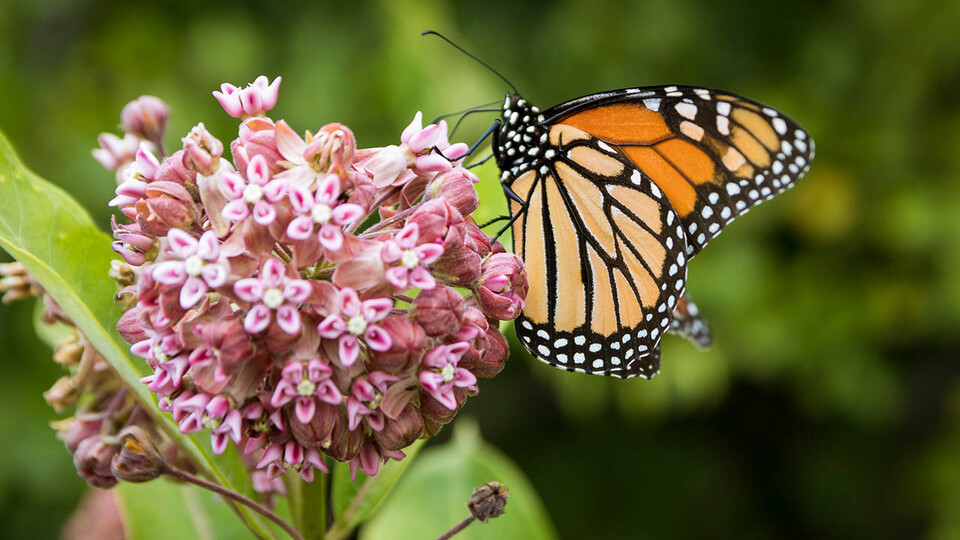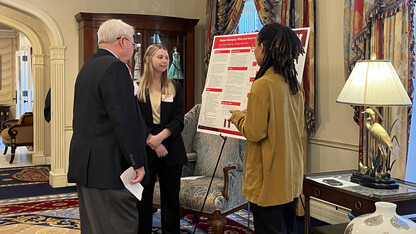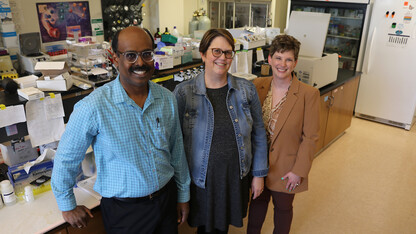· 2 min read
Milkweed education project gets grant from Nebraska Environmental Trust

The University of Nebraska–Lincoln has received $18,069 from the Nebraska Environmental Trust for a milkweed education project.
Doug Golick, associate professor of entomology, will lead the effort to launch a pilot program that engages at least 45 Nebraska schools in growing milkweed plants in the classroom, educates at least 1,125 students about the importance of pollinators and pollinator habitat, and establishes at least 2,000 milkweed stems throughout the state. The project’s broader goal is to motivate participants to play an active role in the development of pollinator habitat and the advocacy of sound conservation practices that impact soil, water, air and wildlife.
The university, Pheasants Forever and the Prairie Plains Resource Institute will collaborate to recruit Nebraska schools for the pilot program, called Milkweed in the Classroom. Participating groups will receive a kit that includes all necessary supplies for growing milkweed plants. The research team will train the classrooms to grow milkweed plants from seed and provide teachers with a curriculum, developed at the university, to be used in conjunction with growing the plants. Students also will plant milkweed plants in their local communities and monitor milkweed plots to evaluate success.
The project is one of 118 receiving $20 million in grant awards from the NET this year. Of these, 73 were new applications and 45 are carry-over projects.
The Nebraska Legislature created the NET in 1992. Using revenue from the Nebraska Lottery, the trust has provided more than $328 million in grants to more than 2,300 projects across the state. Anyone – citizens, organizations, communities, farmers and businesses – can apply for funding to protect habitat, improve water quality and establish recycling programs in Nebraska. The NET works to preserve, protect and restore the state’s natural resources for future generations.







